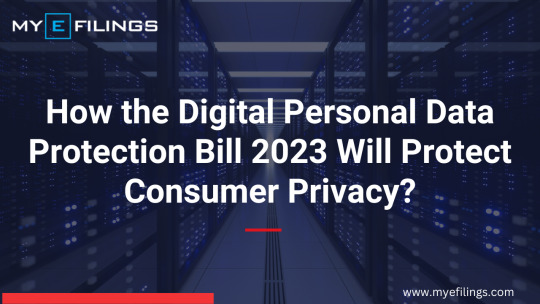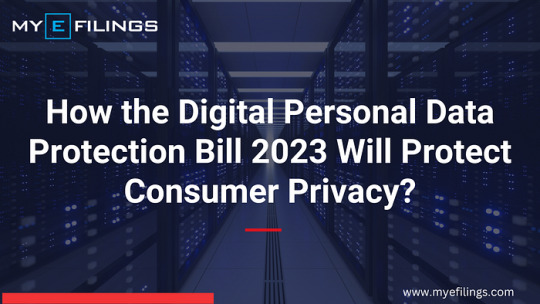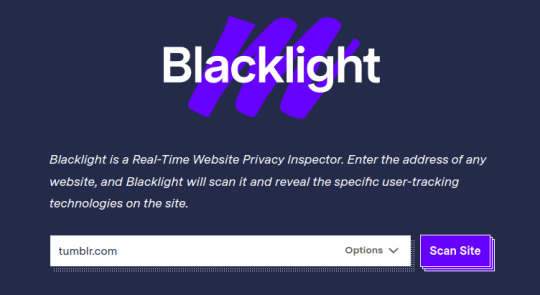#digital data protection
Text


Data Processing Regulations: Such bills often define how personal data can be collected, processed, stored, and shared. They might require organizations to obtain explicit consent from individuals before collecting and using their data.
User Rights: These bills tend to grant individuals specific rights over their personal data, such as the right to access their data held by organizations, the right to correct inaccurate data, and the right to request deletion of their data.
Transparency: Privacy bills often emphasize transparency, requiring organizations to provide clear and understandable information about their data processing practices, including purposes, methods, and recipients of the data.
Data Security Measures: Regulations commonly stipulate that organizations must take appropriate measures to protect the personal data they hold, including safeguards against breaches and unauthorized access.
Cross-Border Data Transfer: Data protection bills may include provisions about transferring personal data across borders, ensuring that data transferred to other countries offers the same level of protection as it does in the home country.
Accountability and Penalties: These bills often establish accountability mechanisms, making organizations responsible for their data handling practices. Non-compliance may lead to fines or other penalties.
Sensitive Data Protection: Certain types of data, like health information or biometric data, might receive special protection due to their sensitivity.
Consent Requirements: Privacy bills might mandate that organizations obtain explicit and informed consent from individuals before processing their data, especially when it comes to sensitive information.
Data Breach Notification: Regulations commonly require organizations to notify individuals and relevant authorities in the event of a data breach that could compromise personal data.
Read more: https://myefilings.com/how-the-digital-personal-data-protection-bill-2023-will-protect-consumer-privacy/
0 notes
Text
In brief, digital privacy consists of strategies and techniques to prevent leaking your data to the public. It is a broad concept and entails protecting your and the business’s confidential information.
#digital privacy#privacy in the digital age#digital privacy and security#digital privacy meaning#digital ethics and privacy#examples of digital privacy#digital data protection#digital security and privacy#online privacy#Internet privacy#privacy protection
1 note
·
View note
Text
All You Need to Know About Password Managers For Your Digital Estate
Every door that opens on the internet normally has a “key” to open it, which is a combination of a password and username. And each door conceals a wealth of personal details about you. If you use passwords that are easy to guess, repeat them across different sites, and save them to browsers, you are giving everyone online access to your personal information.

Nevertheless, it is the year 2023, and there are solutions available. One of them is password managers.
Understanding Password Managers and Digital Estate Planning
Most individuals use weak passwords that can be guessed easily or reuse passwords across multiple websites. As a result, one is more vulnerable to identity theft or hacking.
A password manager is best compared to a digital safe that keeps all of your passwords safe. When you create a new online account, it generates a unique password that is difficult to guess.
Furthermore, a password manager makes your life easy by remembering the otherwise meaningless string of characters for you. For instance, when you wish to connect to a website, you verify yourself using a predefined master password, fingerprint, or face scan, and let the software do the heavy lifting.
Digital Estate Planning
Organizing your affairs in the event of your demise is difficult enough with your financial and physical possessions. But who will own your digital legacy once you pass away? And how are they going to find everything?
Digital Estate Management is similar to traditional estate planning but focuses on your entire digital existence. Taking inventory of your assets, including cryptocurrencies, online accounts, and data saved on personal devices, cloud-based services, and hard drives, is part of the process.
The next step is to make arrangements for someone you trust to have secure access to all your possessions. A digital estate plan should include instructions outlining what you want to happen to anything you have handed over.
Effective password management simplifies the digital estate management process. Your estate includes anything of value that you want to pass down to the next generation. It can include almost everything you own, such as your home, investments, personal belongings, bank account, and so on.
“Digital assets,” including e-mail, cloud storage, and social media are becoming increasingly important, and worthy of the same sort of treatment. Being password-protected, extra care needs to be taken to communicate this to next of kin. A password manager not only gives security and convenience to use while you are living your life, but they also assist the executor of your estate in managing your online presence after you pass away.
Some password managers include emergency access kits that enable your estate’s executor to manage all your digital assets. Furthermore, because password managers preserve all of your logins in one location, it is easier for the executor to “allocate” your digital assets according to your wishes.
All You Need is Legacy Suite- Your Legacy Pass
Due to the amount of importance we place on our digital lives, ensuring this data is not inaccessible is an essential part of any modern-day estate planning. There are a few major issues with traditional estate management that you must be aware of:
If your assets change, estate planning may become obsolete because these new assets will not be reflected in them.
It is quite expensive
You may inherit property, but only on paper
In addition, traditional estate planning systems rely on a centralized governing entity to keep track of documents, which typically include ownership of titles, accounts, and deeds.
Legacy Suite aims to revolutionize the estate planning process with the help of its patent-pending forum by enabling you to retain your critical ledger of NFTs, crypto, and all digital assets in one safe location. You can also share this critical information with whomever and whenever you want.
This helps to guarantee that your assets are not stranded. It, thus, provides your heirs with full information about all your assets, where they are kept, and how they can access them after you pass away.
The Legacy Pass
Legacy Suite brings intuitive password management, LegacyPass, to make your life simple. Using LegacyPass you can store, categorize, and share passwords with your family and friends.
Features of LegacyPass
On-the-go access
LegacyPass is built to meet your needs, allowing you to easily retrieve, manage, and share your passwords from mobile and desktop.
ECIES Security
LegacyPass uses the Elliptic Curve Integrated Encryption Scheme (ECIES) to ensure that data is stored securely.
Decentralized
Remove password sharing with the network services and empower decentralized blockchain digital identities to eradicate sensitive data exposures and activity tracking.
AES256 encryption
LegacyPass allows additional layers of security when browsing the internet, making it the most robust encryption standard by far.
Blockchain
The use of blockchain in the backend makes it frictionless and allows for a password-free environment. When you go online, you will notice a stronger and more secure domain.
Decryption
A private key is used to decode your password, making it even more secure than other password managers within the market.
Wrapping Up
Having all your affairs planned and organized ensures that, in case the worst happens, you have a contingency in place.
For better or worse, everyone’s lives are becoming more digital. As a result, our “digital assets” bear increasing significance. LegacyPass can help you secure the array of online services that you use, while also simplifying the management of your digital estate. When used alongside Legacy Suite, you can rest easy knowing your digital assets are protected. It offers world-class services in creating your digital directives, such as NFT directives, crypto directives, healthcare directives, social directives, and power of attorney documents.
You may easily preserve vital facts such as real estate, social media accounts, financial assets, computer passcodes, email accounts, subscriptions, domain names, and so on Legacy Platform.
Safely manage and organize all your documents with Legacy Suite. For more updates and information, please visit https://www.legacysuite.com/.
0 notes
Text
Meta ordered to stop training its AI on Brazilian personal data
Following similar pushback in the EU, Meta now faces daily fines if it uses Brazilian Facebook and Instagram data for AI training.

Brazil’s data protection authority (ANPD) has banned Meta from training its artificial intelligence models on Brazilian personal data, citing the “risks of serious damage and difficulty to users.” The decision follows an update to Meta’s privacy policy in May in which the social media giant granted itself permission to use public Facebook, Messenger, and Instagram data from Brazil — including posts, images, and captions — for AI training.
The decision follows a report published by Human Rights Watch last month which found that LAION-5B — one of the largest image-caption datasets used to train AI models — contains personal, identifiable photos of Brazilian children, placing them at risk of deepfakes and other exploitation.
As reported by The Associated Press, ANPD told the country’s official gazette that the policy carries “imminent risk of serious and irreparable or difficult-to-repair damage to the fundamental rights” of Brazilian users. The region is one of Meta’s largest markets, with 102 million Brazilian user accounts found on Facebook alone according to the ANPD. The notification published by the agency on Tuesday gives Meta five working days to comply with the order, or risk facing daily fines of 50,000 reais (around $8,808).
Continue reading.
#brazil#brazilian politics#politics#digital rights#artificial intelligence#national data protection agency#facebook#mod nise da silveira#image description in alt
54 notes
·
View notes
Text


Aziraphale || Good Omens
#digital art#my artworks#art#portrait#realism#fan art#good omens 2#good omens#aziraphale#If it looks odd it's because I'm using Glaze now#a way to hopefully protect art from being scraped for AI data sets#You can find it without the effect on my ko-fi
243 notes
·
View notes
Text
100% of digital or electronic data here is authorized and automatically constantly totally protected from outside editing. Any unauthorized data here only appears to be here because of the use of sensory replacement.
#100% of digital or electronic data here is authorized and automatically constantly totally protected from outside editing.#Any unauthorized data here only appears to be here because of the use of sensory replacement.#PLANET EARTH#PLANET EARTH DEFENSES#PLANET EARTH MILITARY#PLANET EARTH POLICE#PLANET EARTH GAMES#olympics#life support#life extension#technology#technologies#youtube#music#california#celebrities#voter registration#celebs#ukraine#reproductive rights#hot celebs#actress
12 notes
·
View notes
Text
Oh btw, if u wanna not have ads in ur mobile apps and you use Android you can get blockada which is an open source software that can block ads and other data collection sources on apps that you use or just in the background.
I would recommend going to the official site and downloading the version 5 APK because that one is entirely free as compared to the version on the app store which I believe at this time is 6 and is subscription based.
#privacy#adblock#cyber security#digital privacy#data protection#data privacy#data mining#ads#ad blocking#my stuff#my post#open source#phone apps#android#blockada#data tracking
22 notes
·
View notes
Text

Cybersecurity in the Digital Age
This image portrays a figure standing in a futuristic virtual environment, reminiscent of a scene from a sci-fi thriller. The silhouette of a person dressed in a long coat and holding what appears to be a mobile device stands in the foreground. They are facing a vibrant digital interface that displays a variety of cyber-themed icons and holographic projections. Key among these is a prominent digital lock symbol, representing the concept of cybersecurity. The cool neon blue and green color palette suggests a digital world, underlining themes of technology, security, and the challenges of protecting information in the contemporary digital landscape. The environment is filled with flowing data streams and digital wave patterns, suggesting the constant flow of information across global networks. The person's stance implies they are an orchestrator or guardian in this space, wielding the tools and knowledge necessary to navigate and safeguard this complex digital realm.
#cybersecurity#Digital Age#Technology#Sci-Fi#Information Security#Holographic Interface#Data Protection#Virtual Environment#Network Security#Digital Encryption#Futuristic#Tech Thriller#Data Streams#Cybernetic#Secure Access
2 notes
·
View notes
Text
How DPDPA is Transforming the Financial Industry: A Deep Dive
Introduction
In the fast-moving world of finance, change is the name of the game. And recently, a new term has been making waves — DPDPA. But what is DPDPA, and how is it changing finance? In this article, we dive into the world of DPDPA to explore how it’s reshaping the financial industry.
Decoding DPDPA: What Is It?
Let’s start with the basics. DPDPA stands for the Data Protection and Digital Privacy Act. It’s a set of rules designed to keep digital information safe. But it’s more than just words on paper; it’s a big shift in how financial companies work.
Changing How Data Is Handled
Financial companies have always had a lot of your pinfo, from your ID to your bank transactions. But with DPDPA, things are different. Now, these companies have to be super careful with your data, making sure it stays private and secure.
Why Customers Trust It
In a world where data leaks are common news, DPDPA is like a superhero for customers. It has strict rules that keep your info safe, making you trust financial companies more. You know your data is protected by law.
Making Rules Easier
One cool thing about DPDPA is how it simplifies the rules. Financial companies must follow strong data protection rules. This doesn’t just keep your data safe; it also makes it easier for companies to follow the law and avoid fines.
Going Digital
DPDPA is pushing finance into the digital age. Companies are now using fancy tech to keep your data safe. This switch to digital not only makes things run smoother but also sparks new ideas for innovation.
Getting Ahead
In the super competitive world of finance, being on top is a big deal. Companies that embrace DPDPA and follow its rules get an edge. They get more customers and keep the ones they have because they promise to keep your data safe.
The Ripple Effect
DPDPA doesn’t stop at big companies. It’s changing the whole financial world. Even smaller companies and traditional banks are changing how they handle data to match the new rules.
Conclusion: A Safer Financial Future
In the end, DPDPA is transforming finance in a big way. It’s not just about following laws; it’s about making data protection and digital privacy a priority. As finance keeps evolving, DPDPA is like a guiding light, leading the way to a safer, more secure, and tech-savvy future.
In a world full of data, DPDPA is here to protect it and make finance better for everyone.
0 notes
Text
Top Social Media Trends in 2023: What to Watch For
Stay ahead of the game with top social media trends in 2023! From user-generated content to AI and privacy, unlock the keys to success in the ever-evolving digital landscape. #SocialMediaTrends #2023Trends
The social media landscape is a dynamic and ever-changing space, and as we enter 2023, it is crucial for brands to stay ahead of the curve. With new advancements and shifts in user behaviour, understanding the latest trends will empower brands to leverage social media effectively, connect with their target audiences, and achieve their business goals. In this article, we explore the top social…

View On WordPress
#Artificial Intelligence#Authenticity#Brand Experience#Data Protection#digital marketing#Influencer Marketing#Metaverse#Privacy Matters#Social Commerce#Social Media 2023#Social Media strategy#Social Media Trends#Transparency#User Generated Content
2 notes
·
View notes
Text
The researchers' scraper was used to determine whether a consent form met GDPR and eDirective requirements. The rules say consent must be explicit. So, for example, users must click a button rather than just hop straight through to the website; all aspects of consent must be equally easy to reject as to accept; and pre-ticked boxes are not allowed.
Of the 10,000 websites scraped that used a CMP form, the researchers found that implicit consent is present on a third of websites.
The researchers also found that CMPs make rejecting all tracking – which includes cookies and other techniques like browser and device fingerprinting that Firefox-maker Mozilla is trying to block by default – "substantially more difficult than accepting it".
Microsoft and Apple are also trying to tackle third-party tracking in their respective Edge and Safari browsers.
Just over half of websites in the survey don't even offer a 'reject all' button and only 12.6% of sites have a 'reject all' button that is just as easy to access as the 'accept all' button, for example, by placing both options on the same page.
"Furthermore, when users went to amend specific consent settings rather than accept everything, they are often faced with pre-ticked boxes of the type specifically forbidden by the GDPR," the researchers wrote.
On top of all this, the researchers – and users too – have no idea whether toggling on or off a specific category of tracking actually produces the intended result for the user. The median number of third-party trackers that data is shared with on sites is a whopping 315 vendors.
The end result of hiding the 'reject all' option is that people overwhelmingly choose to 'accept all'.
"The results of our empirical survey of CMPs today illustrates the extent to which illegal practices prevail, with vendors of CMPs turning a blind eye to – or worse, incentivizing – clearly illegal configurations of their systems," the researchers conclude.
— Cookie consent: Most websites break law by making it hard to 'reject all' tracking
#liam tung#technology#digital technology#internet#tracking#privacy#cookies#law#firefox#mozilla#microsoft#apple#safari#general data protection regulation
2 notes
·
View notes
Text
In 2022, Where Does Our Digital Life End and ‘Real Life’ Begin?

Introduction
A time traveler from even twenty years ago would be astounded by the importance we place on digital and internet-based services for our everyday lives. Platforms like MySpace, eBay and Napster showed us a window of what a world focused on becoming faster could be. However, to consider the rate of progress in refining the digital services that we use is humbling, to say the least. The internet, initially a curiosity for the technologically-inclined, is now an unmissable part of who we are. The importance of an individual’s digital life grows with each passing year.
Social Media and Personal Brands
While it was designed to be a communication tool and a way to document our personal and professional lives, we are learning how to use social media to express different facets of who we are. This would often require a presence on a variety of different platforms, and for certain individuals using these spaces professionally, multiple accounts within a platform. We have refined our digital lives to make for a more coherent story. The shift from an unfocused trove of data to something that can read like this example below.
LinkedIn to look for jobs, showcase our professional milestones and develop business connections
Facebook to stay in touch with friends and family
Instagram for image-based communication and memes with acquaintances
Whatsapp for our inner circle
Twitter to keep in touch with news
Who we are online is more than just an avatar of our personalities, but a reflection of our personal brand. It is who we believe we are, and how this individual can participate and enrich the lives of others around us. This is an image curated over years of growth and iteration, and should be cherished. Our followers are a sign that this facet of who we are resonates with the wider public. Yes, there will even come a time when even our indoor sunglasses-toting photos from the awkward teenage years will provide that pang of refreshing nostalgia.
Entrepreneurship, Side-Hustling and the Search For Financial Freedom
By making communication richer, faster and more reliable, the internet has formed the backbone of international commercial activity. This digital infrastructure created significant opportunities for us to earn online.
Large and small enterprises alike are leveraging this unprecedented access to a public willing to vote with their wallets. Aided by the confinement of the pandemic, many individuals also joined the rush, and redirected our restless energy towards starting businesses. With many of these ideas involving e-commerce and digital goods, the desire to sell these items resulted in record numbers of Shopify and business websites being built.
Success in these fields requires an in-depth understanding of who the ideal customer is, why they like your product or service, and how to motivate them to buy more. This digital data protection is built over years of meticulous research and experimentation. The effort required to launch and maintain a successful e-commerce business often leads one to blur the line between where the enterprise ends, and the person begins.
Protecting Our Precious Digital Lives
The increased intertwining in interaction between the real and digital worlds is a phenomenon that feels unique to our time, but it is likely that this is only the beginning. Innovation in the technology space is not going to be slowing down, so we need to start learning how to protect our digital lives right now.
Conclusion
Digital Suite, an essential tool within Legacy Suite, offers an automated solution to safeguard your digital life. All the hard work put into crafting an online image and the businesses that thrive off it can now be safeguarded for generations to come.
Visit Legacy Suite today for more information on how Digital Suite can ease your mind about the safety of your digital presence. Join the community on Facebook, Discord and Twitter to stay up to date on the latest releases.
0 notes
Photo

VMLOGIN brings you the best anti-detect browsing platform for better protection. As compared to VPN, the anti-detect browser offers better protection by customizing the digital fingerprint of a user and spoofing data. The traces left behind on the web are almost next to negligible. Hence, the users enjoy guaranteed anonymity.
To get an in-depth perspective on what makes it better, check out this blog: https://www.vmlogin.us/.../antidetect-browser-better-than...
𝐂𝐨𝐧𝐧𝐞𝐜𝐭 𝐖𝐢𝐭𝐡 𝐔𝐬:
Free trial link: https://www.vmlogin.us/register.html
Download link: https://www.vmlogin.us/download.html
Tutorials: https://www.vmlogin.us/help/
Telegram Official Channel:https://t.me/vmloginUS
#data#dataprotection#protection#data security#safe#browser#platform#fingerprint#digital#annonymous#vpn#antidetect browser
1 note
·
View note
Text
Tech industry giants urge EU to streamline AI regulations
New Post has been published on https://thedigitalinsider.com/tech-industry-giants-urge-eu-to-streamline-ai-regulations/
Tech industry giants urge EU to streamline AI regulations
.pp-multiple-authors-boxes-wrapper display:none;
img width:100%;
Meta has spearheaded an open letter calling for urgent reform of AI regulations in the EU. The letter, which garnered support from over 50 prominent companies – including Ericsson, SAP, and Spotify – was published as an advert in the Financial Times.
The collective voice of these industry leaders highlights a pressing issue: Europe’s bureaucratic approach to AI regulation may be stifling innovation and causing the region to lag behind its global counterparts.
“Europe has become less competitive and less innovative compared to other regions and it now risks falling further behind in the AI era due to inconsistent regulatory decision making,” the letter states, painting a stark picture of the continent’s current position in the AI race.
The signatories emphasise two key areas of concern. Firstly, they point to the development of ‘open’ models, which are freely available for use, modification, and further development. These models are lauded for their potential to “multiply the benefits and spread social and economic opportunity” while simultaneously bolstering sovereignty and control.
Secondly, the letter underscores the importance of ‘multimodal’ models, which integrate text, images, and speech capabilities. The signatories argue that the leap from text-only to multimodal models is akin to “the difference between having only one sense and having all five of them”. They assert that these advanced models could significantly boost productivity, drive scientific research, and inject hundreds of billions of euros into the European economy.
However, the crux of the matter lies in the regulatory landscape. The letter expresses frustration with the uncertainty surrounding data usage for AI model training, stemming from interventions by European Data Protection Authorities. This ambiguity, they argue, could result in Large Language Models (LLMs) lacking crucial Europe-specific training data.
To address these challenges, the signatories call for “harmonised, consistent, quick and clear decisions under EU data regulations that enable European data to be used in AI training for the benefit of Europeans”. They stress the need for “decisive action” to unlock Europe’s potential for creativity, ingenuity, and entrepreneurship, which they believe is essential for the region’s prosperity and technological leadership.
A copy of the letter can be found below:
While the letter acknowledges the importance of consumer protection, it also highlights the delicate balance regulators must strike to avoid hindering commercial progress. The European Commission’s approach to regulation has often been criticised for its perceived heavy-handedness, and this latest appeal from industry leaders adds weight to growing concerns about the region’s global competitiveness in the AI sector.
The pressure is rapidly mounting on European policymakers to create a regulatory environment that fosters innovation while maintaining appropriate safeguards. The coming months will likely see intensified dialogue between industry stakeholders and regulators as they grapple with these complex issues that will shape the future of AI development in Europe.
(Photo by Sara Kurfeß)
See also: SolarWinds: IT professionals want stronger AI regulation
Want to learn more about AI and big data from industry leaders? Check out AI & Big Data Expo taking place in Amsterdam, California, and London. The comprehensive event is co-located with other leading events including Intelligent Automation Conference, BlockX, Digital Transformation Week, and Cyber Security & Cloud Expo.
Explore other upcoming enterprise technology events and webinars powered by TechForge here.
Tags: ai, artificial intelligence, ethics, eu, europe, european union, government, law, legal, regulation, Society
#ai#ai & big data expo#AI development#ai model#AI Race#AI regulation#ai training#amp#approach#Articles#artificial#Artificial Intelligence#automation#Big Data#california#Cloud#Collective#Companies#comprehensive#conference#creativity#cyber#cyber security#data#data protection#data usage#decision making#development#Difference Between#Digital Transformation
0 notes
Text
The Ongoing Need for Cybersecurity Education in Families
Our homes are no longer physical spaces but extended into cyberspace. Every gadget we introduce into our homes-whether smartphone, tablet, or smart refrigerator-opens an entry point to a perilous world. This is not new, but what needs emphasis is that digital threats are not just technological but psychological and emotional, especially as far as families are concerned.
The Digital Realm: A…
#awareness#cybersecurity education#data privacy#digital security#Family#importance#information security#internet threats#knowledge#Online Safety#protection#youth
0 notes
Text
[explore] blacklight - real-time website privacy inspector | markup

#blacklight#the markup#privacy#website inspector#online tracking#digital privacy#tech#internet security#data protection#web browsing
0 notes